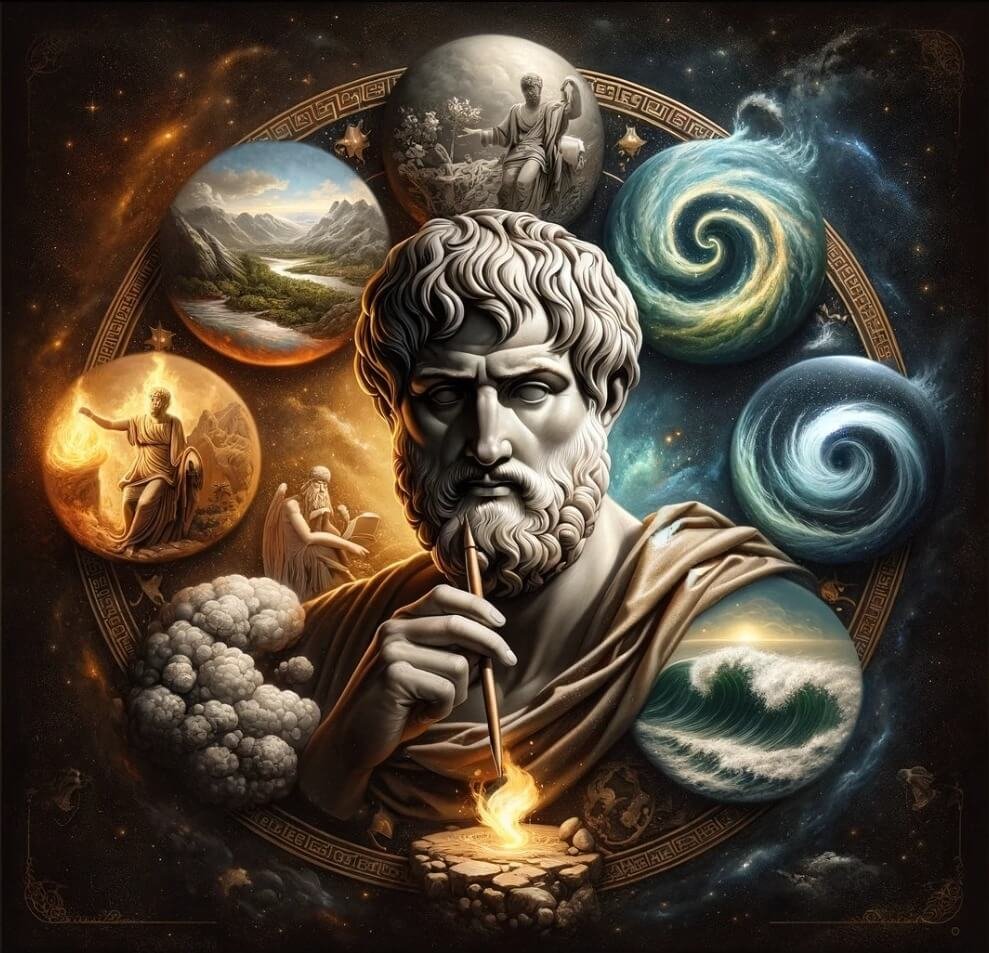Aristotle, one of the most influential philosophers and scientists in human history, made significant contributions to a wide array of fields, including physics, biology, ethics, and political theory. However, his work in the realm of metaphysics – the study of the fundamental nature of reality – is perhaps one of his most intriguing contributions. Here, he proposed the concept of 'Quinta Essentia,' or the 'Fifth Element,' a concept that continues to fascinate scholars to this day.
Ancient Concepts of Matter
To understand the Quinta Essentia, it is necessary to first understand the ancient Greeks' understanding of matter. Long before the advent of modern chemistry and physics, the Greek philosophers posited that the universe was made up of four fundamental elements: earth, air, fire, and water. Each element was associated with a pair of the four fundamental qualities: hot, cold, wet, and dry. Earth was cold and dry, air was hot and wet, fire was hot and dry, and water was cold and wet. This theory is largely attributed to the pre-Socratic philosopher Empedocles, and it became the cornerstone of natural philosophy for centuries.
The Quinta Essentia
Aristotle, however, felt that these four elements were not enough to explain the complexity and diversity of the universe. In his view, there must be a fifth element – a Quinta Essentia or fifth essence – that existed beyond the terrestrial sphere.
This Fifth Element, according to Aristotle, was fundamentally different from the other four. While earth, air, fire, and water were subject to change and decay, the Quinta Essentia was eternal, unchanging, and incorruptible. It did not contain the contradictory qualities like hot and cold or wet and dry; it was purely itself. This quintessence was believed to be the element that made up the heavenly bodies, stars, and planets – the ethereal realm beyond our own.
The Influence of the Quinta Essentia
The concept of the Quinta Essentia had a profound impact on subsequent philosophical, religious, and scientific thought. Medieval alchemists adopted the idea, equating the Quinta Essentia with the elusive philosopher's stone, a substance thought to have the power to transmute base metals into gold and confer immortality.
In Christian philosophy, this fifth element was often associated with the divine, the soul, or the spirit. The idea that there was a substance beyond the physical that was unchanging and incorruptible fit well with Christian theology's concepts of the soul and God.
While modern atomic theory has supplanted the Aristotelian elements in the field of physics, the idea of a fundamental, indivisible, and unchanging "building block" of the universe has persisted in a new form: the atom. In this way, Aristotle's Quinta Essentia continues to echo in our modern understanding of the universe.
Conclusion
Aristotle's Quinta Essentia, or the 'Fifth Element,' represents a crucial part of ancient and medieval metaphysics. As a concept, it helped humanity grapple with the complexities of the universe and played a significant role in the development of various fields of thought. While the specifics of the theory have been replaced by modern scientific understanding, the fundamental question Aristotle was trying to answer—what is the universe made of, and how does it work?—continues to drive human inquiry into the nature of reality.








